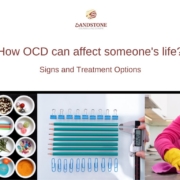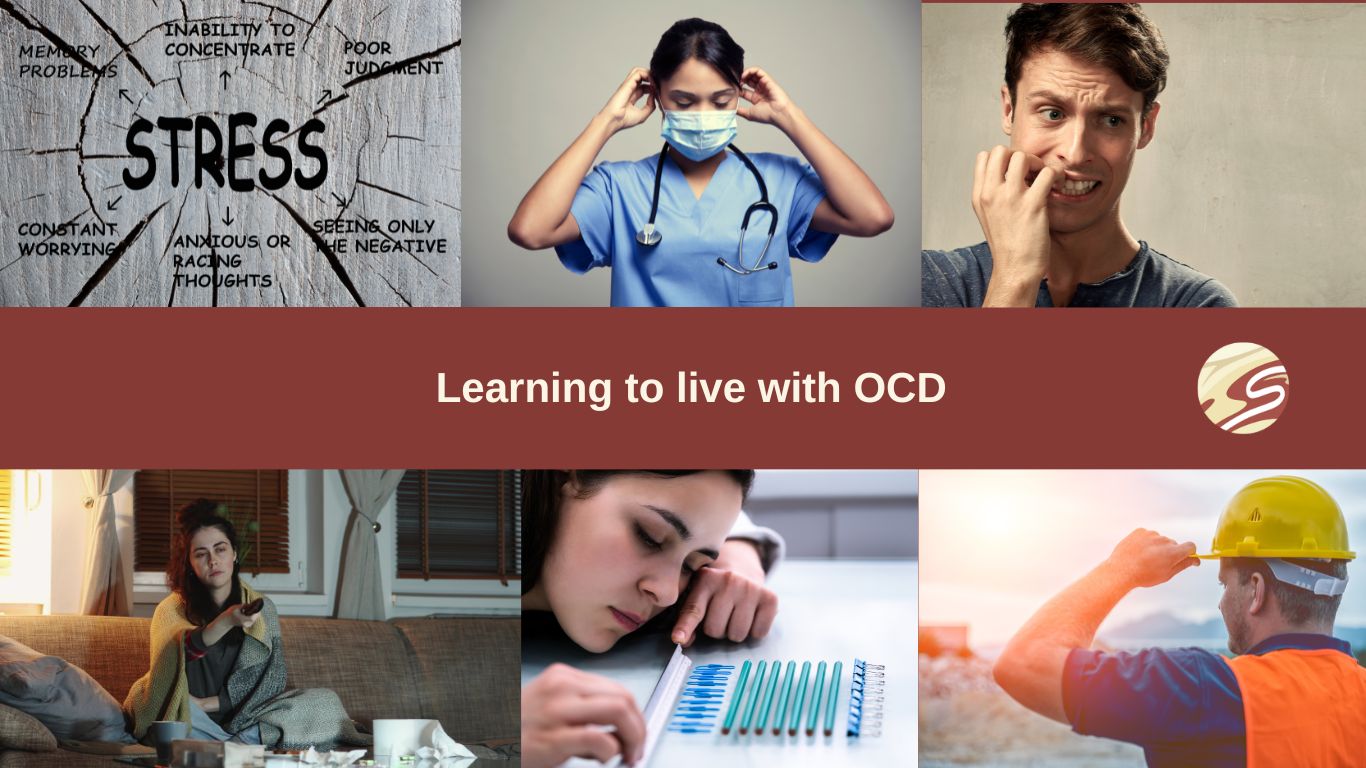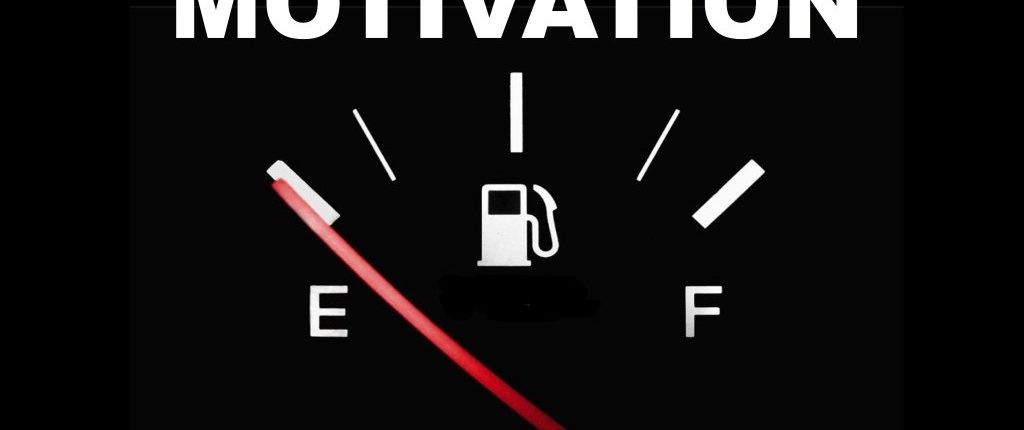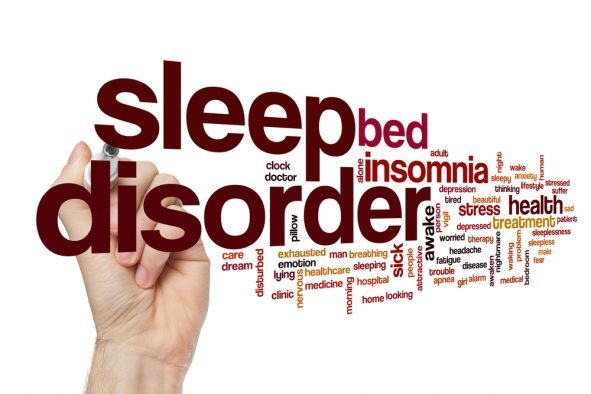Adult ADHD Screening
Adult ADHD Screening with Registered Counselling Therapists
ADHD (Attention Deficit Hyperactivity Disorder) is a mental concern that is characterized by difficulty paying attention, excessive activity, and/or difficulty controlling behavior that is not appropriate for a person‘s age. Symptoms of ADHD can include difficulty focusing on tasks, difficulty following instructions, restlessness, impulsivity, and difficulty organizing tasks.
ADHD screening is a process of evaluating a person for the possible presence of attention deficit/hyperactivity (ADHD). It involves a series of interviews, questionnaires, and other assessments to identify the presence of ADHD symptoms. Screening can help identify the need for further evaluation and treatment for those with the disorder. It can also help to rule out other potential causes of the symptoms. Screening for ADHD is an important step in the diagnosis process and should be conducted by a qualified healthcare professional.
What are the stats surrounding aduldt ADHD in Canada and US?
In the United States, an estimated 8.4% of adults aged 18 to 44 have been diagnosed with ADHD. This is nearly 4.4% of all adults.
In Canada, an estimated 4.4% of adults aged 18 to 44 have been formally diagnosed with ADHD. This represents nearly 2.3% of all adults in the country.
Studies have also shown that up to 10% of the adult population may have ADHD, but remain undiagnosed. In the United States, this number is estimated to be closer to 6.4%, and in Canada, it is estimated to be closer to 4.4%.
It is estimated that nearly 70% of children with ADHD will continue to experience symptoms in adulthood. Additionally, adult ADHD is more common in males than females. – 2021
Impact of ADHD on someone’s life
What test are used to detect ADHD by Counsellors in Canada?
In Canada, counsellors typically use a variety of assessments to diagnose ADHD. These assessments may include standardized questionnaires, clinical interviews, rating scales, behavioural observations, and neuropsychological tests. In addition, a physical evaluation may be performed to rule out any medical conditions that may be causing the symptoms.
How to regulate & treat ADHD?
1. Medication: Registered Clinical Counsellors may also work in collaboration with the client’s physician or psychiatrists. 2. Behavioral Therapy: Behavioral therapy, such as Cognitive Behavioral Therapy (CBT) can be an effective treatment for ADHD. 3. Diet and Exercise: Diet changes, such as reducing sugar and processed foods, and increasing lean proteins, fruits, and vegetables, may help improve symptoms of ADHD. Exercise can help reduce symptoms of ADHD, as well. 4. Supplements: Certain supplements, such as omega–3 fatty acids and iron, have been shown to have a positive effect on ADHD symptoms. II. Regulation 1. Education: The first step in regulating ADHD is educating yourself about the disorder. Understanding the signs and symptoms can help you to identify them early and get the proper treatment. 2. Communication: Good communication between you, your family members, and your healthcare team is key to managing ADHD. 3. Organization: Establishing a consistent daily routine and a system for organizing tasks and activities can help you stay on track. 4. Support: Seek out safe support from family, friends, or a Clinical Counsellor/Psychotherapist/Psychologist
Obsessive Compulsive Disorder OCD
Counselling Services for Obsessive Compulsive Disorder OCD
Examples of OCD can include the following behaviors: 1. Excessive double–checking of things, such as locks, appliances, and switches. 2. Repeatedly checking in on loved ones to make sure they’re safe. 3. Endless cleaning, and/or an unreasonable focus on order, symmetry, and arrangement. 4. Counting, tapping, and repeating certain words or phrases. 5. Uncontrollable skin–picking and hair–pulling. 6. Unwanted, intrusive thoughts that trigger intensely negative emotions. 7. Hoarding items that have little or no value.
Someone might develop OCD due to a combination of genetic, environmental, and psychological factors. These might include a traumatic event, an imbalance of certain brain chemicals, or a family history of OCD. People with OCD may also have a tendency to be perfectionists or to feel anxious or overwhelmed.
What are the stats surrounding OCD in Canada and US?
Canada:
According to a study published in the Canadian Journal of Psychiatry in 2017, it is estimated that between 1.2% and 2.5% of adults in Canada have OCD. Moreover, between 0.5% and 1.2% of children and adolescents suffer from the disorder.
However, these estimates may be underestimated as OCD is often underdiagnosed and underreported. The prevalence of OCD is higher in females than males in adults, with a ratio of 3:2.d.
US:
According to the Anxiety and Depression Association of America, OCD affects approximately 2.2 million adults in the US and is one of the most common mental disorders in the US. It is estimated that 1 in 40 adults in the US, and 1 in 100 children, suffer from OCD. OCD is typically found to begin in adolescence or early adulthood and is equally common among men and women.
Impact of OCD on someone’s life
What test are used to detect OCD by Counsellors in Canada?
There are several tests that can be used to detect OCD in Canada. These tests include the Yale–Brown Obsessive Compulsive Scale (Y–BOCS), the Padua Inventory, the Obsessive–Compulsive Inventory–Revised (OCI–R), the Beck Depression Inventory (BDI), the Hamilton Anxiety Scale (HAM–A) and the Maudsley Obsessive Compulsive Inventory (MOCI). Each of these tests has different questions and criteria that are used to evaluate a person‘s symptoms and help diagnose OCD.
How to regulate & treat OCD?
Obsessive-compulsive disorder (OCD) is a mental health condition characterized by recurring, unwanted thoughts, ideas, or sensations (obsessions) that make a person feel driven to do something repetitively (compulsions). Treatment for OCD could typically involve a combination of medication and therapy. Cognitive-behavioral therapy (CBT) is a type of therapy that can also be helpful for OCD. This form of therapy focuses on identifying and changing negative thought patterns and behaviors. One specific form of CBT called exposure and response prevention (ERP) has been found to be particularly effective for OCD. This therapy involves gradually exposing the person to the source of their obsession while preventing them from engaging in compulsive behavior.
It’s also important to have a support system and maintain a healthy lifestyle, including regular exercise, healthy eating, and getting enough sleep.
A Registered Clinical Counselling Therapist can help to develop an individualized treatment plan that works best for you.
Counselling Online in Prince George BC
Online Counselling Therapist in Prince George BC
Mental Health Counselling Online in Prince George BC?
We are doing our best to meet our client’s needs for online counseling. Life events, quarantine, family obligations, commuting, and other factors can make it difficult to fit in a counseling session in Prince-George. This is why we offer our clients from around Prince George the possibility to access online counseling remotely via our secure online counseling platform.
Individual Counselling is Now Available Online
Depression Treatment
Crisis Counselling
Addictions
[/av_toggle] [av_toggle title='Family Counselling' tags='6' av_uid='av-1rmj8ui' custom_id='']
Family Therapy
[/av_toggle] [av_toggle title='Women’s Health' tags='' av_uid='av-6502ne' custom_id='']
[/av_toggle] [av_toggle title='Men’s Mental Health' tags='' av_uid='av-1osg9gq' custom_id=''][/av_toggle] [av_toggle title='Psychological Safety at The Workplace' tags='' custom_id='' av_uid='av-1vhvqy'] [/av_toggle] [av_toggle title='Chronic Pain Management' tags='' av_uid='av-1kkwsuy' custom_id='']
Learning to Cope With Chronic Pain
[/av_toggle] [/av_toggle_container] [av_button_big label='Book Today' description_pos='below' link='page,268' link_target='_blank' icon_select='yes-left-icon' icon_hover='aviaTBicon_hover' icon='ue862' font='entypo-fontello' custom_font='#faf5de' color='custom' custom_bg='#863a35' color_hover='orange' custom_bg_hover='#444444' av_uid='av-1jqwc96'][/av_button_big] [/av_three_fifth][av_two_fifth min_height='' vertical_alignment='av-align-top' space='' margin='0px' margin_sync='true' padding='0px' padding_sync='true' border='' border_color='' radius='0px' radius_sync='true' background_color='' src='' attachment='' attachment_size='' background_position='top left' background_repeat='no-repeat' animation='' av_uid='av-1hxb896'] [av_image src='https://sandstonecentre.ca/wp-content/uploads/2018/10/counselling-psychotherapy-400x430.jpg' attachment='9530' attachment_size='featured' align='center' styling='' hover='' link='' target='' caption='' font_size='' appearance='' overlay_opacity='0.4' overlay_color='#000000' overlay_text_color='#ffffff' animation='no-animation' av_uid='av-1fsrbai'][/av_image] [/av_two_fifth] [/av_section] [av_slideshow_full size='no scaling' min_height='0px' stretch='' control_layout='av-control-minimal av-control-minimal-dark' src='' attachment='' attachment_size='' position='top left' repeat='no-repeat' attach='scroll' conditional_play='' animation='slide' transition_speed='600' autoplay='true' autoplay_stopper='aviaTBautoplay_stopper' interval='5' lazy_loading='disabled' id='' custom_class='' av_uid='av-1excp4q'] [av_slide_full slide_type='image' id='9501' video='' mobile_image='' video_format='' video_ratio='' title='Counselling, Wellness & Mental Health' custom_title_size='' custom_content_size='' caption_pos='caption_center' link_apply='' link='lightbox' link_target='' button_label='' button_color='light' link1='manually,http://' link_target1='' button_label2='' button_color2='light' link2='manually,http://' link_target2='' font_color='custom' custom_title='#525352' custom_content='#525352' overlay_opacity='0.6' overlay_color='' overlay_pattern='' overlay_custom_pattern='' av_uid='av-4tur96' fallback_link='https://' video_autoplay='' video_controls='' video_mute='' video_loop='' av-medium-font-size-title='' av-small-font-size-title='' av-mini-font-size-title='' av-medium-font-size='' av-small-font-size='' av-mini-font-size='' heading_tag='' heading_class='' overlay_enable=''] Individuals Families Organizations [/av_slide_full] [av_slide_full slide_type='image' id='13036' video='https://' mobile_image='' fallback_link='https://' title='' video_format='' video_ratio='16:9' caption_pos='caption_bottom' custom_title_size='' av-medium-font-size-title='' av-small-font-size-title='' av-mini-font-size-title='' custom_content_size='' av-medium-font-size='' av-small-font-size='' av-mini-font-size='' font_color='' custom_title='' custom_content='' heading_tag='' heading_class='' link_apply='' link='lightbox' link_target='' button_label='Click me' button_color='light' link1='manually,http://' link_target1='' button_label2='Click me' button_color2='light' link2='manually,http://' link_target2='' overlay_opacity='0.5' overlay_color='' overlay_pattern='' overlay_custom_pattern='' av_uid='av-4iunzu' video_autoplay='' video_controls='' video_mute='' video_loop='' overlay_enable=''][/av_slide_full] [/av_slideshow_full] [av_section min_height='' min_height_pc='25' min_height_px='500px' padding='small' custom_margin='0px' custom_margin_sync='true' color='main_color' background='bg_color' custom_bg='#525352' background_gradient_color1='' background_gradient_color2='' background_gradient_direction='vertical' src='' attachment='' attachment_size='' attach='scroll' position='top left' repeat='no-repeat' video='' video_ratio='16:9' overlay_opacity='0.5' overlay_color='' overlay_pattern='' overlay_custom_pattern='' shadow='no-border-styling' bottom_border='no-border-styling' bottom_border_diagonal_color='#333333' bottom_border_diagonal_direction='' bottom_border_style='' custom_arrow_bg='' id='' custom_class='' aria_label='' av_element_hidden_in_editor='0' av_uid='av-24ilclm'] [av_one_full first min_height='' vertical_alignment='' space='' custom_margin='' margin='0px' padding='0px' border='' border_color='' radius='0px' background_color='' src='' background_position='top left' background_repeat='no-repeat' animation='' av_uid='av-23edayy'] [av_heading heading='Individual Counselling' tag='h2' style='blockquote modern-quote modern-centered' subheading_active='' show_icon='' icon='ue800' font='' size='24' av-medium-font-size-title='' av-small-font-size-title='' av-mini-font-size-title='' subheading_size='15' av-medium-font-size='' av-small-font-size='' av-mini-font-size='' icon_size='' av-medium-font-size-1='' av-small-font-size-1='' av-mini-font-size-1='' color='custom-color-heading' custom_font='#f9f5de' icon_color='' margin='' margin_sync='true' padding='0' icon_padding='10' link='' link_target='' id='' custom_class='' av_uid='av-keyqvxgj' admin_preview_bg=''][/av_heading] [/av_one_full] [/av_section] [av_one_full first min_height='' vertical_alignment='' space='' row_boxshadow='' row_boxshadow_color='' row_boxshadow_width='10' custom_margin='' margin='0px' mobile_breaking='' border='' border_color='' radius='0px' padding='0px' column_boxshadow='' column_boxshadow_color='' column_boxshadow_width='10' background='bg_color' background_color='' background_gradient_color1='' background_gradient_color2='' background_gradient_direction='vertical' src='' background_position='top left' background_repeat='no-repeat' highlight='' highlight_size='' animation='' link='' linktarget='' link_hover='' title_attr='' alt_attr='' mobile_display='' id='' custom_class='' aria_label='' av_uid='av-28dhka'] [av_textblock size='' av-medium-font-size='' av-small-font-size='' av-mini-font-size='' font_color='' color='' id='' custom_class='' av_uid='av-keyrxajd' admin_preview_bg='']Our Mental Health Counselling Therapists are trained to see people for a large variety of concerns. Individual counseling sessions are designed to meet your unique needs and personality
Our Counselors provide resources and information as well as a secure and supportive relationship from which we assist you in working through your personal concerns and help you achieve your goals
[/av_textblock] [/av_one_full] [av_section min_height='' min_height_pc='25' min_height_px='500px' padding='small' custom_margin='0px' custom_margin_sync='true' color='main_color' background='bg_color' custom_bg='#f9f5de' background_gradient_color1='rgba(249,245,222,0.5)' background_gradient_color2='' background_gradient_direction='vertical' src='' attachment='' attachment_size='' attach='scroll' position='top left' repeat='no-repeat' video='' video_ratio='16:9' overlay_opacity='0.5' overlay_color='' overlay_pattern='' overlay_custom_pattern='' shadow='no-border-styling' bottom_border='no-border-styling' bottom_border_diagonal_color='#333333' bottom_border_diagonal_direction='' bottom_border_style='' custom_arrow_bg='' id='' custom_class='' aria_label='' av_element_hidden_in_editor='0' av_uid='av-4pe07u'] [av_content_slider heading='' navigation='arrows' columns='3' font_color='custom' color='#525352' heading_tag='h2' heading_class='' animation='slide' autoplay='true' interval='4' id='' custom_class='' av_uid='av-19nlumy'] [av_content_slide title='Anxiety & Panic' link='manually,https://sandstonecentre.ca/manage-stress-anxiety-panic/' linktarget='' av_uid='av-4eap7u' heading_tag='' heading_class=''] [caption id="attachment_9178" align="alignleft" width="495"] What are the symptoms of anxiety?[/caption]
[caption id="attachment_9178" align="alignleft" width="495"]
[/av_content_slide]
[av_content_slide title='Anxiety & Depression' link='manually,https://sandstonecentre.ca/information-treatment-depression-anxiety/' linktarget='' av_uid='av-16oom3u' heading_tag='' heading_class='']
[caption id="attachment_9181" align="alignleft" width="495"]
What are the symptoms of anxiety?[/caption]
[caption id="attachment_9178" align="alignleft" width="495"]
[/av_content_slide]
[av_content_slide title='Anxiety & Depression' link='manually,https://sandstonecentre.ca/information-treatment-depression-anxiety/' linktarget='' av_uid='av-16oom3u' heading_tag='' heading_class='']
[caption id="attachment_9181" align="alignleft" width="495"]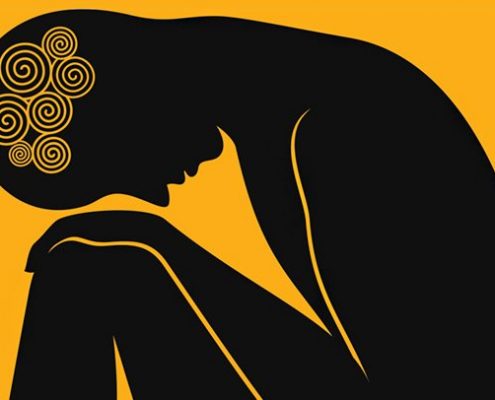 Information about anxiety and treatments[/caption]
[/av_content_slide]
[av_content_slide title='Crisis Counselling' link='manually,https://sandstonecentre.ca/crisis-trauma-emergency-onsite-counsellor-violence-suicide-abuse/' linktarget='' av_uid='av-153s7tm' heading_tag='' heading_class='']
[caption id="attachment_9183" align="alignleft" width="495"]
Information about anxiety and treatments[/caption]
[/av_content_slide]
[av_content_slide title='Crisis Counselling' link='manually,https://sandstonecentre.ca/crisis-trauma-emergency-onsite-counsellor-violence-suicide-abuse/' linktarget='' av_uid='av-153s7tm' heading_tag='' heading_class='']
[caption id="attachment_9183" align="alignleft" width="495"] Trauma counselling support[/caption]
[/av_content_slide]
[av_content_slide title='Depression' link='manually,https://sandstonecentre.ca/depression-manic-clinical-bipolar-signs/' linktarget='' av_uid='av-12pdksq' heading_tag='' heading_class='']
[caption id="attachment_9186" align="alignleft" width="574"]
Trauma counselling support[/caption]
[/av_content_slide]
[av_content_slide title='Depression' link='manually,https://sandstonecentre.ca/depression-manic-clinical-bipolar-signs/' linktarget='' av_uid='av-12pdksq' heading_tag='' heading_class='']
[caption id="attachment_9186" align="alignleft" width="574"] What are the signs and symptoms of depression?[/caption]
[/av_content_slide]
[av_content_slide title='Stress' link='manually,https://sandstonecentre.ca/stress/' linktarget='' av_uid='av-10m0bbu' heading_tag='' heading_class='']
[caption id="attachment_9221" align="alignleft" width="400"]
What are the signs and symptoms of depression?[/caption]
[/av_content_slide]
[av_content_slide title='Stress' link='manually,https://sandstonecentre.ca/stress/' linktarget='' av_uid='av-10m0bbu' heading_tag='' heading_class='']
[caption id="attachment_9221" align="alignleft" width="400"] How create a plan to decrease your stress[/caption]
[/av_content_slide]
[av_content_slide title='Stress Leave From Work' link='manually,https://sandstonecentre.ca/wcb-medical-stress-leave-work/' linktarget='' av_uid='av-zg36mi' heading_tag='' heading_class='']
[caption id="attachment_9226" align="aligncenter" width="495"]
How create a plan to decrease your stress[/caption]
[/av_content_slide]
[av_content_slide title='Stress Leave From Work' link='manually,https://sandstonecentre.ca/wcb-medical-stress-leave-work/' linktarget='' av_uid='av-zg36mi' heading_tag='' heading_class='']
[caption id="attachment_9226" align="aligncenter" width="495"] Specialized Counselling [/caption]
[/av_content_slide]
[av_content_slide title='Grief and Loss' link='manually,https://sandstonecentre.ca/kamloops-obits-obituaries-grief-counsellor/' linktarget='' av_uid='av-yd3xne' heading_tag='' heading_class='']
[caption id="attachment_9229" align="aligncenter" width="495"]
Specialized Counselling [/caption]
[/av_content_slide]
[av_content_slide title='Grief and Loss' link='manually,https://sandstonecentre.ca/kamloops-obits-obituaries-grief-counsellor/' linktarget='' av_uid='av-yd3xne' heading_tag='' heading_class='']
[caption id="attachment_9229" align="aligncenter" width="495"] Grief & Loss Processing[/caption]
[/av_content_slide]
[av_content_slide title='Addictions Counselling' link='manually,https://sandstonecentre.ca/aa-al-anon-alcoholism-drug-use/' linktarget='' av_uid='av-w1cgju' heading_tag='' heading_class='']
[caption id="attachment_9432" align="alignleft" width="600"]
Grief & Loss Processing[/caption]
[/av_content_slide]
[av_content_slide title='Addictions Counselling' link='manually,https://sandstonecentre.ca/aa-al-anon-alcoholism-drug-use/' linktarget='' av_uid='av-w1cgju' heading_tag='' heading_class='']
[caption id="attachment_9432" align="alignleft" width="600"] Addiction Counselling[/caption]
[/av_content_slide]
[av_content_slide title='Anger & Mood Swings' link='manually,https://sandstonecentre.ca/mood-swings-anger-bipolar/' linktarget='' av_uid='av-uodk1m' heading_tag='' heading_class='']
[caption id="attachment_9439" align="alignleft" width="640"]
Addiction Counselling[/caption]
[/av_content_slide]
[av_content_slide title='Anger & Mood Swings' link='manually,https://sandstonecentre.ca/mood-swings-anger-bipolar/' linktarget='' av_uid='av-uodk1m' heading_tag='' heading_class='']
[caption id="attachment_9439" align="alignleft" width="640"] Anger Management[/caption]
[/av_content_slide]
[av_content_slide title='Chronic Pain ' link='manually,https://sandstonecentre.ca/chronic-pain/' linktarget='' av_uid='av-tlot5m' heading_tag='' heading_class='']
[caption id="attachment_9441" align="aligncenter" width="1500"]
Anger Management[/caption]
[/av_content_slide]
[av_content_slide title='Chronic Pain ' link='manually,https://sandstonecentre.ca/chronic-pain/' linktarget='' av_uid='av-tlot5m' heading_tag='' heading_class='']
[caption id="attachment_9441" align="aligncenter" width="1500"]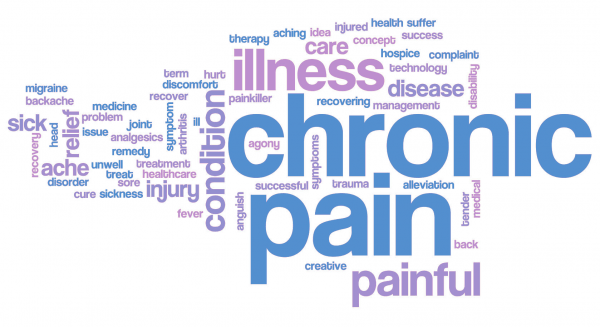 Counselling for Chronic Pain[/caption]
[/av_content_slide]
[av_content_slide title='Walk & Talk Counselling ' link='manually,https://sandstonecentre.ca/walk-talk-therapy-counselling/' linktarget='' av_uid='av-rwvlfe' heading_tag='' heading_class='']
[caption id="attachment_9445" align="aligncenter" width="940"]
Counselling for Chronic Pain[/caption]
[/av_content_slide]
[av_content_slide title='Walk & Talk Counselling ' link='manually,https://sandstonecentre.ca/walk-talk-therapy-counselling/' linktarget='' av_uid='av-rwvlfe' heading_tag='' heading_class='']
[caption id="attachment_9445" align="aligncenter" width="940"] Walk and talk counselling therapy[/caption]
[/av_content_slide]
[av_content_slide title='Hypnotherapy' link='manually,https://sandstonecentre.ca/hypnotherapy-hypnosis-counselling/' linktarget='' av_uid='av-pratay' heading_tag='' heading_class='']
[caption id="attachment_9459" align="aligncenter" width="591"]
Walk and talk counselling therapy[/caption]
[/av_content_slide]
[av_content_slide title='Hypnotherapy' link='manually,https://sandstonecentre.ca/hypnotherapy-hypnosis-counselling/' linktarget='' av_uid='av-pratay' heading_tag='' heading_class='']
[caption id="attachment_9459" align="aligncenter" width="591"] What is Hypnotherapy?[/caption]
[/av_content_slide]
[av_content_slide title='Career Counselling' link='manually,https://sandstonecentre.ca/kamloops-jobs-career-counselling/' linktarget='' av_uid='av-niuam2' heading_tag='' heading_class='']
[caption id="attachment_9470" align="aligncenter" width="800"]
What is Hypnotherapy?[/caption]
[/av_content_slide]
[av_content_slide title='Career Counselling' link='manually,https://sandstonecentre.ca/kamloops-jobs-career-counselling/' linktarget='' av_uid='av-niuam2' heading_tag='' heading_class='']
[caption id="attachment_9470" align="aligncenter" width="800"] Career Counselling[/caption]
[/av_content_slide]
[/av_content_slider]
[/av_section]
[av_textblock size='' av-medium-font-size='' av-small-font-size='' av-mini-font-size='' font_color='' color='' id='' custom_class='' av_uid='av-l0d0aioz' admin_preview_bg='']
Career Counselling[/caption]
[/av_content_slide]
[/av_content_slider]
[/av_section]
[av_textblock size='' av-medium-font-size='' av-small-font-size='' av-mini-font-size='' font_color='' color='' id='' custom_class='' av_uid='av-l0d0aioz' admin_preview_bg='']
We only offer individual counselling services to adults at the moment
[/av_textblock] [av_section min_height='' min_height_px='500px' padding='small' shadow='no-border-styling' bottom_border='no-border-styling' id='' color='main_color' custom_bg='' src='' attachment='' attachment_size='' attach='scroll' position='top left' repeat='no-repeat' video='' video_ratio='16:9' overlay_opacity='0.5' overlay_color='' overlay_pattern='' overlay_custom_pattern='' av_uid='av-mkpq7u'] [av_content_slider heading='' navigation='arrows' columns='3' font_color='custom' color='#525352' heading_tag='' heading_class='' animation='slide' autoplay='true' interval='4' id='' custom_class='' av_uid='av-lf9bd6'] [av_content_slide title='Family Therapy' link='page,600' linktarget='' av_uid='av-iswbp6' heading_tag='' heading_class=''] [caption id="attachment_9474" align="alignnone" width="1024"] Family Therapy[/caption]
[/av_content_slide]
[av_content_slide title='School Aged Children' link='page,156' linktarget='' av_uid='av-h2ib7u' heading_tag='' heading_class='']
[caption id="attachment_9480" align="alignnone" width="730"]
Family Therapy[/caption]
[/av_content_slide]
[av_content_slide title='School Aged Children' link='page,156' linktarget='' av_uid='av-h2ib7u' heading_tag='' heading_class='']
[caption id="attachment_9480" align="alignnone" width="730"] Child Counselling[/caption]
[/av_content_slide]
[av_content_slide title='Child Youth Mental Health' link='page,153' linktarget='' av_uid='av-fd4b16' heading_tag='' heading_class='']
[caption id="attachment_9484" align="alignnone" width="700"]
Child Counselling[/caption]
[/av_content_slide]
[av_content_slide title='Child Youth Mental Health' link='page,153' linktarget='' av_uid='av-fd4b16' heading_tag='' heading_class='']
[caption id="attachment_9484" align="alignnone" width="700"] Youth & Mental Health Counselling[/caption]
[/av_content_slide]
[av_content_slide title='Teen Adolescent Counselling' link='page,163' linktarget='' av_uid='av-el7pwq' heading_tag='' heading_class='']
[caption id="attachment_9488" align="alignnone" width="496"]
Youth & Mental Health Counselling[/caption]
[/av_content_slide]
[av_content_slide title='Teen Adolescent Counselling' link='page,163' linktarget='' av_uid='av-el7pwq' heading_tag='' heading_class='']
[caption id="attachment_9488" align="alignnone" width="496"] Counselling for Teens[/caption]
[caption id="attachment_9488" align="aligncenter" width="496"]
[/av_content_slide]
[av_content_slide title='Parenting Consulting' link='page,602' linktarget='' av_uid='av-bsqluy' heading_tag='' heading_class='']
[caption id="attachment_9493" align="alignnone" width="560"]
Counselling for Teens[/caption]
[caption id="attachment_9488" align="aligncenter" width="496"]
[/av_content_slide]
[av_content_slide title='Parenting Consulting' link='page,602' linktarget='' av_uid='av-bsqluy' heading_tag='' heading_class='']
[caption id="attachment_9493" align="alignnone" width="560"] Parenting[/caption]
[/av_content_slide]
[av_content_slide title='Perinatal Counselling' link='page,612' linktarget='' av_uid='av-aepzbu' heading_tag='' heading_class='']
[caption id="attachment_9497" align="alignnone" width="1500"]
Parenting[/caption]
[/av_content_slide]
[av_content_slide title='Perinatal Counselling' link='page,612' linktarget='' av_uid='av-aepzbu' heading_tag='' heading_class='']
[caption id="attachment_9497" align="alignnone" width="1500"] Perinatal Counselling[/caption]
[/av_content_slide]
[/av_content_slider]
[/av_section]
Perinatal Counselling[/caption]
[/av_content_slide]
[/av_content_slider]
[/av_section]
Should I Consider Online Counselling if I live in Prince George?
Pros & Cons of Online Counseling
Grief | Workplace
Grief at the Workplace Counselling
Education | Consulting | Debriefing
Five tips to help employers take proactive steps to support grieving employees?
1- Sharing as much information as is appropriate to employees;
2- Having outside Registered Clinical Counsellors/ Psychotherapists that specializing in grief support come to the workplace and meet with employees and organization members;
3- Planning the transition: anticipating questions & answering them before they are asked, makes the employees feel supported;
4- Find the approach and strategies to allow the grieving process to take place. Every individual process thoughts differently and trained managers can identify these stages and support employees through them.
5- Be supportive of the affected family members by facilitating access to benefits, supports and available help programs.
Counselling ICBC Customers
Counselling for ICBC Customers Injured in an Accident
How to claim your Counselling Expenses with ICBC
Our mental health can be affected by a motor vehicle accident (MVA)
What is the effect of a car accident on the brain?
Can a car crash accident cause anxiety, PTSD, or depression?
Perhaps a Registered/Certified Clinical Counsellor can assist you with those concerns
If you have been involved in an MVA Accident in BC within 12 weeks you could be eligible for Counselling Coverage
Up to 12 counselling sessions can be approved automatically
No physicians Referral Needed
Text us today to verify your eligibility
Check-list to assist you in selecting a Registered/Certified Counselling Therapist
Counsellor | Psychotherapist:
Ease the process of setting up counselling support after a motor vehicle accident (MVA)
Feel free to use this checklist to assist you in selecting a Registered/Certified Counselling Therapist | Counsellor | Psychotherapist:
• Verify if the therapist is a registered provider with ICBC – In most cases, only a registered provider with ICBC can perform third-party direct billing;
• Is your counselling service provider able to share documents in a way that meets the health industry standard and in a prompt manner with third parties, such as ICBC or your lawyer/legal representative?
• Is your counsellor skilled in providing the necessary documentation relevant to processing your claim?
- Will the counsellor be able to offer you weekly appointments?
• Client user fees are often essential to offer you a sustainable service. They vary from one counselling practice to another. Hiring a counsellor may add to your monthly budget. Determining the exact amount of the user fee prior to booking is advisable.
• As per ICBC some counselling costs could be covered with Extended Health. This coverage can be verified by you with your Extended Health Benefits provider. This can be completed prior to submitting a claim for ICBC related counselling expense (coverage for the user fee).
• It is also advisable to determine the exact date of your accident, the recent changes to ICBC’s coverage may impact how your claim is processed. For example, for accidents prior to April 1st, 2019, claimants require a physician’s referral to access approved services.
Post Accident Mental Health Assessment & Counselling
The BC provincial government has released regulations on auto insurance product changes.
Those changes are outlined in the Insurance (Vehicle) Act
ICBC coverage for Motor Vehicle Accident (MVA) Psychological Counselling is detailed in Part 7
MVA Psychological Counselling changes are under the ICBC Small Accident claims model
What are the benefits of getting counselling after a Motor Vehicle Accident in BC?
1. Improved mental health: Counselling can help you manage the symptoms of trauma, anxiety, and depression that can result from a motor vehicle accident. It can also help you cope with the stress of the accident and its aftermath.
2. Improved physical health: Mental health counselling can help reduce the physical effects of trauma, such as headaches, muscle tension, and fatigue.
3. Improved communication skills: Counselling can help you develop better communication skills, which can be useful when dealing with difficult people or situations.
4. Improved problem-solving skills: Mental health counselling can help you develop better problem–solving skills, which can help you better cope with the challenges of dealing with the aftermath of a motor vehicle accident.
5. Improved self-awareness: Counselling can help you gain insight into your thoughts, feelings, and behaviours. This can help you better understand yourself and your responses to different situations.
6. Improved relationships: Counselling can help you to develop stronger relationships with family members, friends, and other important people in your life. This can help you better manage the stress that can result from a motor vehicle accident.
Clinical Counselling Coverage
Small Accident Coverage
ICBC Small Accident Coverage:
1- Expiry: 12 weeks following a crash occurring on or after April 1, 2019;
2- Number of pre-authorized clinical counselling treatments:
One initial assessment + eleven sixty minutes counselling sessions =
- 1 x Initial Assessment to be scheduled within the first weeks
- 11 x 60 minutes session
3- ICBC Initial Assessment Coverage: $223 + GST (1 time)
4- ICBC Standard MVA Counseling Session Coverage: $127/treatment + GST (11 x 60 minutes session);
- Clients are responsible for paying the user fee portion.
- Multiple clinical counselling sessions on the same day are not funded by ICBC;
- Clients may submit User Fees payment receipts to their private health insurer for consideration of coverage (as per ICBC);
* Co-Payment is required *
Third-Party billing with ICBC must be pre-approved by our office
How to Book with a Counsellor
We are an ICBC Registered Vendor
- In addition to your basic contact info please be ready to provide the following information:
- Personal Health Number: (for ICBC reporting purposes)
- ICBC claim number(s);
- Date of the accident(s):
- Adjuster’s name and contact information:
- Name & contact information of your legal representative (optional):
- Valid credit card/ (Visa-Mastercard Debit accepted) number in file: (to cover the expenses that may be declined by ICBC and cover the user fees at each session)
- Contact information of third-party payer (if necessary):
This information will be used for the purpose of verifying your claim eligibility verification and communicate with ICBC. Details regarding communications with ICBC are outlined in our consent forms that will be sent to you.
2. General Terms & conditions
- Once we booked the ICBC Initial Assessment appointment you will receive by e-mail our consents forms outlining our standard terms and conditions
- The consent forms must be filed within 24 hours after scheduling your Initial Assessment appointment.
The ICBC Initial Assessment (first appointment) will be scheduled for a duration of 90 minutes
- We require a minimum of 72 hours notice of change/cancellations for the first session (ICBC Initial Assessment)
We will send the Initial Assessment report to ICBC on your behalf and make a copy the report accessible to you as well.
- In some case, ICBC will need this report from us to approve or decline more sessions.
3. Follow-up counselling sessions
- If counselling is deemed necessary by our Registered Clinical Counsellor, you will be able to schedule follow-up individual counselling session(s) – Duration: 60 minutes (standard session)
- We require 24 hours notice for any cancellations or changes to your weekly counselling appointments;
If your Motor Vehicle Accident occurred more than 12 weeks ago, please consult ICBC Claim Recovery Specialist prior contacting us to engage in service. They will provide you with details about eligibility requirement for counselling
BC Registered & Canadian Certified Counsellors
Effective & Trusted Counselling Therapists
Men & Relationship
Individual Relationship Counselling & Coaching for Men
- Problem in marriage
- Intimate relationship;
- Relationship building;
- Communication skills;
- Emotional awareness;
- Self-esteem;
- Self-affirming behaviour;
- Solution-oriented counselling for life and relationship success;
What are Common Causes of Relationship Issues for Men?
1. Poor communication: Not talking about things that are bothering you, not listening to your partner, and not expressing yourself clearly can all lead to relationship issues. 2. Financial problems: Financial problems are a major source of stress in relationships, and can lead to a lack of trust, resentment, and even infidelity. 3. Jealousy: Whether it’s fueled by insecurity or insecurity–driven anger, jealousy is a huge contributor to relationship issues. 4. Unresolved conflicts: If conflicts are not resolved in a timely manner, they can build up and cause resentment and anger. 5. Lack of physical connection: Physical connection can help to keep a relationship strong and healthy, and a lack of physical connection can lead to a lack of emotional connection. 6. Different expectations: Different expectations can lead to misunderstandings and disagreements, which can put a strain on the relationship. 7. Family dynamics: Family dynamics can play a role in how a relationship works and can be a source of tension if not handled properly. 8. Infidelity: Infidelity can cause a great deal of pain and distrust in a relationship, and can be a major contributor to relationship issues.
Can Individual Counselling Help men with marriage & family relationship issues?
Individual counselling can help men with marriage and family relationship issues. Counselling can help men to better understand their own feelings and behaviour and how these can affect marriage and family relationships. Counselling can also help men to identify and work on any underlying issues that may be impacting their marriage or family relationships. Counselling can provide a safe and supportive space for men to explore and discuss their thoughts and feelings, enabling them to make positive changes in their relationships.
Symptoms of Anxiety in Men
Counselling Services for Anxiety in Men
What are the Symptoms of Anxiety in Men?
Common symptoms of anxiety in men include:
1. Constant worrying
2. Difficulty concentrating
3. Irritability
4. Restlessness
5. Muscle tension
6. Fatigue
7. Insomnia
8. Difficulty controlling feelings of worry
9. Panic attacks
10. Avoidance of social situations
11. Difficulty controlling behavior
12. Rapid heart rate
13. Sweating
14. Shortness of breath
15. Stomach problems
How men can reduce and cope with anxiety?
1. Exercise Regularly: Exercise has been proven to reduce stress and anxiety. Engaging in 30 minutes of aerobic exercise three to five times a week can help reduce anxiety symptoms. 2. Practice Mindfulness and Meditation: Mindfulness and meditation can help reduce anxiety by calming the mind and body. 3. Get Adequate Sleep: Lack of sleep can worsen anxiety symptoms. Aim for 7–9 hours of quality sleep each night. 4. Talk to Others: Talking to someone about your worries, fears, and anxieties can help reduce your stress levels. 5. Eat a Healthy Diet: Eating a healthy, balanced diet can help reduce anxiety symptoms. Avoid foods that are high in sugar and saturated fat. 6. Take Time for Yourself: Make time for activities that you enjoy. This could include reading a book, taking a walk, or listening to music. 7. Limit Caffeine and Alcohol: Caffeine and alcohol can both worsen anxiety symptoms. Limit your intake of these substances. 8. Practice Relaxation Techniques: Relaxation techniques such as deep breathing, progressive muscle relaxation, and yoga can help reduce anxiety.
How counselling can help men to cope with anxiety symptoms?
Counselling can help to cope with anxiety symptoms by providing a safe and non-judgmental environment where someone can talk about feelings and experiences. Counsellors can help to identify the underlying cause of anxiety and provide coping strategies to manage their symptoms. This can include talking through their worries, exploring lifestyle changes and developing relaxation techniques, such as breathing exercises and mindfulness. Counselling can also help men to build self–confidence, self–esteem and resilience.
Depression in Men
Depression Counselling for Men
Signs & Symptoms of Depression in Men
Men may experience depression symptoms such as:
- Mood: depressed mood most of the day and nearly every day such as feeling an emptiness, or sadness within;
- Interest or pleasure: finding it challenging to feel interested in activities or finding enjoyment in activities previously enjoyable;
- Weight loss/gain: changes in appetite or in the desire to eat, possible overeating or under eating;
- Sleep: challenges initiating sleep or staying asleep, possibly waking early in the morning with the inability to resume sleep;
- Energy: feeling tired or worn out and unable to find the motivation to move through the activities of daily living;
Men’s Mental Health
here are several main mental health issues affecting men in Western Canada. It’s important to note that these issues can also affect individuals across genders, but men may face unique challenges due to societal expectations and norms. Some of the main mental health issues include: 1. Depression: Depression is a significant mental health concern among men in Western Canada. Men may be less likely to seek help for depression due to social stigma, and symptoms of depression may often manifest differently in men compared to women. This can lead to underdiagnosis and undertreatment. 2. Suicide: Suicide rates among men in Western Canada are higher compared to women. Men may be less likely to openly discuss or seek help for their mental health struggles, which can contribute to the higher rates of suicide. 3. Substance abuse: Substance abuse and addiction are prevalent mental health issues affecting men in Western Canada. Men may turn to alcohol or other substances as a way to cope with mental health problems, which can often worsen their condition. 4. Anxiety disorders: Anxiety disorders, including generalized anxiety disorder, social anxiety disorder, and panic disorder, are prevalent among men in Western Canada. These disorders can significantly impact quality of life and functioning. 5. Post-Traumatic Stress Disorder (PTSD): Men who have experienced trauma, such as military veterans or first responders, may be at a higher risk of developing PTSD. This disorder can have a significant impact on mental health and overall well-being. 6. Work-related stress: Men in Western Canada may experience high levels of work-related stress and burnout due to demanding job expectations and pressure to provide for their families. This can lead to mental health issues such as anxiety and depression. 7. Eating disorders: While eating disorders are often associated with women, men can also struggle with these conditions. Body image concerns and societal pressures can contribute to the development of eating disorders in men. 8. Relationship issues: Men in Western Canada may face challenges in maintaining satisfying relationships, which can impact their mental health. Issues such as communication difficulties, relationship conflicts, and feelings of isolation can contribute to stress and anxiety. It’s important to note that mental health issues can affect individuals regardless of gender, and each person’s experience is unique. Seeking professional help from mental health experts and community support services is crucial for addressing and managing these concerns effectively.
Preventative measures men can take to improve their mental health and wellness
In addition to seeking professional help through counselling, there are several preventative measures that men can take to improve their mental health and wellness: 1. Regular exercise: Engaging in regular physical activity has been shown to have significant mental health benefits. Exercise helps reduce stress, improve mood, boost self-esteem, and increase resilience. Aim for at least 150 minutes of moderate-intensity aerobic exercise per week, along with strength training exercises. 2. Healthy diet: Maintaining a nutritious and balanced diet is essential for overall well-being, including mental health. Include plenty of fruits, vegetables, whole grains, lean proteins, and healthy fats in your meals. Limit your intake of processed foods, added sugars, and unhealthy fats. 3. Get enough sleep: Prioritize getting sufficient restful sleep every night. Lack of sleep can contribute to increased stress, anxiety, and poor mental health. Aim for 7-9 hours of quality sleep each night by maintaining a consistent sleep routine and creating a sleep-friendly environment. 4. Practice stress management techniques: Find healthy ways to manage and cope with stress, as chronic stress can negatively impact mental health. Explore stress reduction techniques such as deep breathing exercises, meditation, yoga, or engaging in hobbies and activities that bring you joy and relaxation. 5. Socialize and build meaningful connections: Nurturing relationships and staying connected with others is crucial for mental health. Make an effort to spend time with family and friends, engage in social activities, and seek support from trusted individuals when needed. 6. Set boundaries and manage workload: Manage your professional and personal responsibilities effectively by setting boundaries and prioritizing self-care. Avoid taking on too many obligations and learn to say no when necessary. Delegate tasks when possible and focus on what truly matters to avoid burnout. 7. Practice self-care: Make self-care a priority by engaging in activities that bring you joy and relaxation. This can include hobbies, spending time in nature, indulging in artistic pursuits, reading, or engaging in mindful activities such as journaling or deep breathing exercises. 8. Seek support and stay informed: Education and awareness about mental health are crucial for early identification and intervention. Stay informed about mental health issues, resources, and support networks in your community. Reach out to professionals or support groups when needed, and don’t hesitate to seek help if you’re struggling. Remember, everyone’s mental health journey is unique, and finding the right strategies and support that work for you may take time and experimentation. Listen to your body and mind, and prioritize your mental health and well-being just as you would your physical health.
Can counselling help men to improve their mental health condition?
Counselling can be highly beneficial to men struggling with mental health challenges in several ways: 1. Safe space to open up: Counselling provides a safe and non-judgmental space for men to express their thoughts, emotions, and concerns. Men may be socialized to hide their feelings and be stoic, but counselling allows them to be vulnerable and share their struggles without fear of being judged. 2. Emotional support: Men often face societal expectations to be strong and self-reliant, which can make it difficult for them to seek emotional support. Counselling offers a supportive environment where men can explore their emotions, develop healthy coping mechanisms, and learn to manage stress and anxiety effectively. 3. Improved self-awareness: Counselling helps men develop a better understanding of their thoughts, feelings, and behaviors. Through self-reflection and exploration, they can gain insight into the underlying causes of their mental health challenges and develop strategies to address them. 4. Learning healthy coping mechanisms: Counselling equips men with effective coping skills to manage stress, anxiety, and other mental health issues. This can include techniques such as relaxation exercises, mindfulness practices, and assertiveness training. 5. Relationship improvement: Counselling can strengthen interpersonal skills and communication strategies, helping men improve their relationships with loved ones, friends, and coworkers. Understanding and expressing emotions, resolving conflicts, and developing healthy boundaries are crucial aspects of relationship improvement. 6. Suicide prevention: Counselling plays a critical role in suicide prevention by providing a supportive and understanding environment for men to express their feelings of hopelessness or despair. Counsellors can help identify and address suicidal thoughts, develop safety plans, and connect individuals to appropriate resources. 7. Addiction and substance abuse treatment: Counselling can support men struggling with addiction and substance abuse by helping them explore the underlying causes and triggers of their substance use, develop relapse prevention strategies, and provide ongoing support during recovery. 8. Building resilience: Counselling encourages the development of resilience, which is the ability to bounce back from adversity. By working with a counsellor, men can develop strategies and skills to cope with setbacks, manage stress, and maintain a positive outlook on life. Overall, counselling provides a valuable space for men to prioritize their mental health, seek help, and develop the necessary tools to navigate and overcome mental health challenges. It is important for men to recognize the benefits of seeking support and to understand that it is a sign of strength to prioritize their well-being.
Stress Leave From Work
Counselling for Medical & Stess Leaves from Work
Often the concerns are complex, involving a combination of multiple stressors in one’s professional and personal life.
We offer specialized counselling service supporting a healthy return to work.

